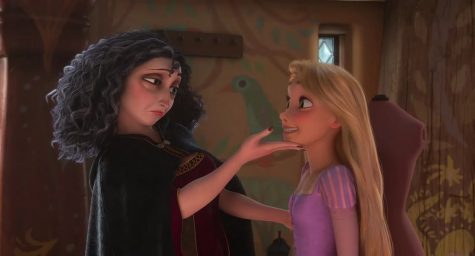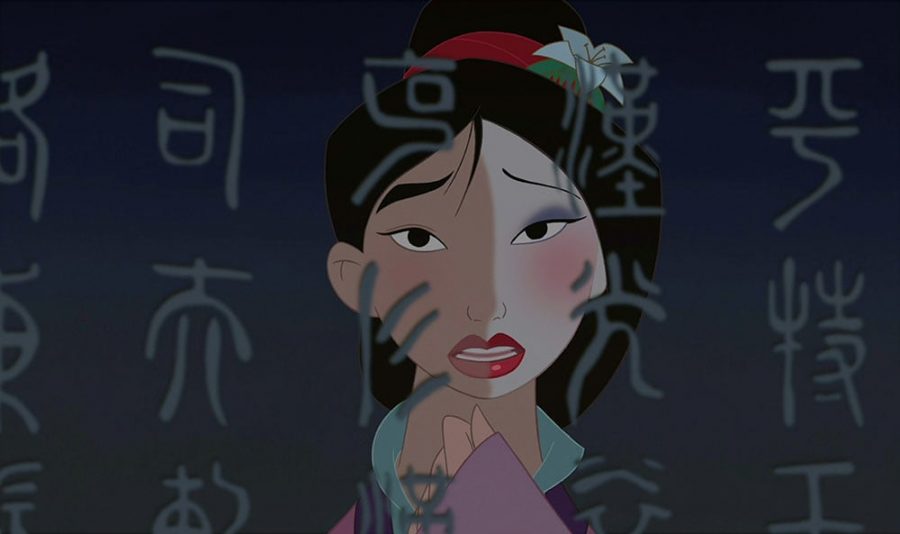Heroes in Deed (and in Song!)
October 1, 2020
What makes a children’s movie iconic? Is it the humorous appeal or gorgeous animation? Well, sort of. While all of these are important, the true stars of children’s movies are the ones that hide in plain sight: the songs. Among the brightly colored and beautifully animated tapestry that is a well-made children’s movie, the beauty of its music ties it all together. But what makes us — even as we’ve grown up — so drawn to that Disney song? The answer lies not in the upbeat track that you hum in the shower, but rather what that tune contains. So what’s in a lyric? For the youngest demographic, the fun, snap-along bop is enough. But as we grow up, it is the lyrics that pull us in.
It’s not that we weren’t paying attention to these lyrics as children; rather, we complete the experience of truly listening to a good children’s song when we look back with more knowledge and life experience. Let’s take a look at one of Disney’s most popular songs — Mulan’s “Reflection” — as an example.
Something Mulan seeks throughout the movie is self-acceptance and the acceptance of others. However, Mulan cannot reconcile her true self with who society expects her to be. She sings, “somehow I cannot hide / who I am, though I’ve tried / when will my reflection show, who I am, inside?”
For the LGBTQ+ community particularly, this hits home. In fact, many have hailed this famous Disney song as a gay anthem. Too often, members of the community feel inadequate, just like our heroine. Transgender people especially relate to Mulan wondering what’s wrong with her, when in reality, nothing is. The real problem is not with her, much like Mulan’s story arc tells us.
The parallels extend to even Mulan’s character development. After all, a socially ostracized woman who is uncomfortable in her role is exactly how the journey of transitioning begins for many people. Mulan’s inability to “bring honor” as a traditional wife was not her destiny. She brought honor to her home as herself. In this way, not only did she blow up the Hun army (giving her the biggest body count of a Disney princess), she also blew up gender roles! It is powerful to know that the LGBTQ+ community sees Mulan, a heroine for an entire generation, as an icon championing transgender and gay rights.
Another song from the House of Mouse is “Mother Knows Best.” This iconic song from Tangled involves Gothel singing to Rapunzel, telling her about the dangers of the outside world. As a child, this song went way over my head. But Mother Gothel’s tactics were actually much more sinister than first meets the eye. On the surface, her voice sounds bright and sunny. This is ironic when you consider that the lyrics contain phrases such as: “Plus, I believe / Gettin’ kinda chubby / I’m just saying cause I [love] you.”
This is an excellent metaphor for abuse and is even referenced by many abuse survivors while talking about the emotional abuse they have faced. Perhaps Gothel never hits Rapunzel, but she does constantly degrade her, telling her about all her flaws. In this song, she manipulates Rapunzel into believing she needs Gothel, which is a common tactic in abusers. If we take a look at the abuse too many children suffer in the real world, it is very reminiscent of Gothel’s. She seems friendly, and might even shower Rapunzel with “affection” at times, but at the end of it, her love only extends to the length of Rapunzel’s hair.

Of course, this could all be the ramblings of a sleep-deprived Disney nerd. However, the songs that we have heard as children are near and dear to our hearts for a reason: they are relevant. In one way or another, whether it be empowerment or similar experiences, we realize that the heroes can be us too. With that thought in mind, perhaps music can bring us all together, no matter our age.


